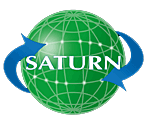You are here
Science and Technology University Research Network (SATURN) Collaboratory
 The Science and Technology University Research Network (SATURN) Collaboratory is an interdisciplinary, river-to-shelf observational network. SATURN includes tidal freshwater stations, ocean gliders, autonomous underwater vehicles (AUVs), and estuarine and plume stations measuring everything from salinity and temperature to biogeochemistry and bacterial diversity on a 24/7 basis.
The Science and Technology University Research Network (SATURN) Collaboratory is an interdisciplinary, river-to-shelf observational network. SATURN includes tidal freshwater stations, ocean gliders, autonomous underwater vehicles (AUVs), and estuarine and plume stations measuring everything from salinity and temperature to biogeochemistry and bacterial diversity on a 24/7 basis.
The data collected from SATURN feeds the Virtual Columbia River, a skill-assessed modeling system that offers multiple representations of processes, variability and change across river-to-ocean scales.
Observation Network
The SATURN observation network has multiple endurance stations combined with seasonal glider and AUV deployments that provide high-resolution temporal detail and insight into spatial variability. SATURN observational assets are multidisciplinary and extend across the Columbia River estuary, plume and ocean shelf.
Virtual Columbia River
The SATURN modeling system (Virtual Columbia River) aims to provide a progressively more comprehensive in silico representation of the estuary and coastal margin, across multiple processes, disciplines and space and time scales. Products of the Virtual Columbia River include forecasts, simulation databases, a Climatological Atlas and targeted simulations of processes or scenarios. There are various types of numerical models, each of which is run with realistic bathymetry and river, ocean and atmospheric forcing to produce daily forecasts, decade-scale historical simulations, and future scenarios of change due to climate or anthropogenic activity.
SATURN’s observations and the models’ simulations are products used and influenced by a number of communities of practice, individuals and groups who conduct science or make decisions incorporating the information and insight generated by these collaboratory components.
Cyber-infrastructure
The SATURN modeling system and observation network are integrated via an end-to-end computational infrastructure. This infrastructure provides real-time access to observation network data as well as timely access to a wide range of quality-controlled data, derived data-products, and modeling system outputs.
History and Affiliations
SATURN is built upon, replaces and substantially expands a pioneering coastal margin observatory, CORIE (created 1996). SATURN is an affiliated network of the Northwest Association of Networked Ocean Observation Systems (NANOOS), the Pacific Northwest component of the Integrated Ocean Observing System (IOOS).



